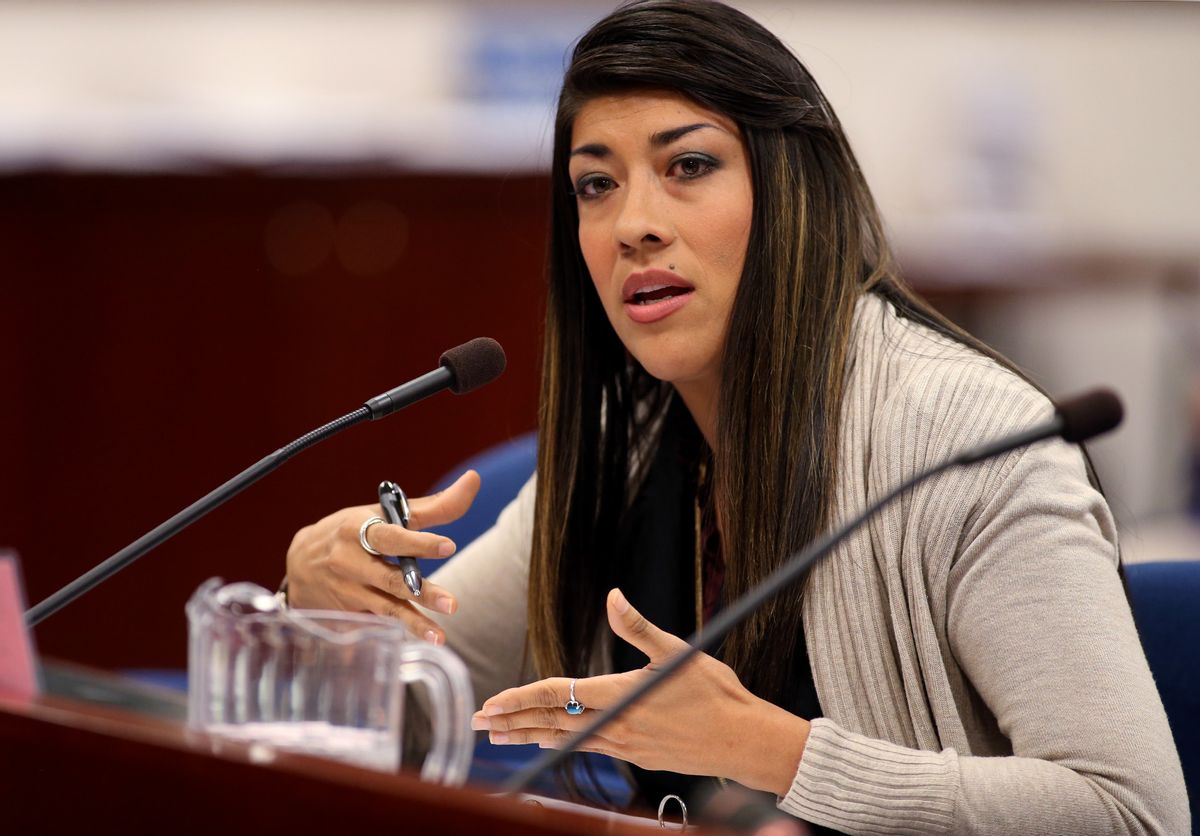According to current data, one in four women will have an abortion by the time they turn 30. One in three will have an abortion in their lifetimes. Overall, around 50 percent of American women will experience an unintended pregnancy by the time they hit 45. Put simply, millions of women in this country will have an abortion -- or at least be confronted with the choice of having abortion -- at some point in their life. Women in political office are no exception, yet we rarely hear from them. And it's because of this climate of near total silence and stigma that the few politicians who do speak out seem downright revolutionary.
Lucy Flores, a Democratic member of the Nevada State Assembly who may be charting a path to becoming governor, had an abortion when she was 16 years old. We know this because she said as much in 2012 while testifying in support of a measure to expand school health programs. Her experience was relevant to the issue at hand, so she shared it. MSNBC political reporter Benjy Sarlin included the exchange in a profile of Flores that ran over the weekend:
“I had six other sisters … all of them became pregnant in their teens -- all of them,” Flores said. “One of them was 14 years old when she got pregnant with twins.”
Then, with a nervous laugh, Flores told her colleagues something she had never admitted to anyone.
“Since I’m sharing so much this session, I might as well keep going,” she said. “I always said that I was the only one who didn’t have kids in their teenage years. That’s because at 16, I got an abortion.”
Her eyes welled up and her voice caught as she described how she had convinced her father to pay the $200 cost for the procedure. She didn’t want to end up like her sisters, Flores told him.
“I don’t regret it,” she said. “I don’t regret it because I am here making a difference, at least in my mind, for many other young ladies and letting them know that there are options and they can do things to not be in the situation I was in, but to prevent.”
When any woman shares her abortion story, she creates space for others to do the same. That in and of itself is a tremendously powerful and generous act. And when women like Flores -- or California Rep. Jackie Speier, who disclosed her own abortion experience in 2011 -- share stories publicly and in the very places that policies governing reproductive healthcare are crafted and voted on, they change the political landscape. They humanize the issue, and position themselves as experts on the policies that have personally impacted their lives -- and the lives of millions of other women. There's real power in that.
Flores knew the stakes involved in educating teens about contraception and pregnancy because she lived them. Sharing her story was undoubtedly brave, but it was also an intuitive choice. If you want to talk about teen pregnancy, listening to women who were pregnant as teens makes complete sense. Which is exactly why more politicians should be willing to talk about this stuff. Statistically, there are more women in Congress and state legislatures across the country who have had these same experiences. Their voices should be leading these policy debates. (Same goes for the men who have made these choices with their partners or other family members. Everyone has a role to play in reducing stigma and centering the experiences of real people who have made these choices.)
And as Sarlin points out, it's pretty hard for other politicians to weaponize these stories against the women who share them. Because despite a lot of heated rhetoric from the right about reproductive healthcare, most Americans still believe these decisions are wildly personal and that women should be the ones making them. “I don’t think it would be wise for anyone to get into the mud about [Flores’] former life,” Nevada-based GOP strategist Robert Uithoven told MSNBC.
This is a real opportunity for Democrats who have only just begun to play offense on reproductive rights to start turning things around. For years now, anti-choice politicians have used bogus science and faux concern for women's health to own the terms of the debate, and the consequences have been devastating. If more women like Flores started coming out with their own experiences about abortion care -- how far they had to drive to reach a clinic, how much it cost them, the protesters they confronted on their way, their experience with the doctors and clinic staff -- it would demystify the experience for the many Americans who are getting their information about reproductive healthcare from caveman fools like Lindsey Graham and Rick Perry.
We're long overdue for some common sense and reality checking in our debates about reproductive healthcare. Lucy Flores was willing to step up. Who's next?

Shares